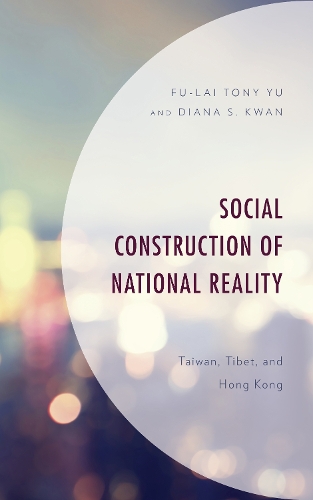
Social Construction of National Reality: Taiwan, Tibet and Hong Kong
(Hardback)
Publishing Details
Social Construction of National Reality: Taiwan, Tibet and Hong Kong
By (Author) Fu-Lai Tony Yu
By (author) Diana S. Kwan
Bloomsbury Publishing PLC
Lexington Books
14th October 2020
United States
Classifications
Professional and Scholarly
Non Fiction
Society and culture: general
Geopolitics
306.0951
Physical Properties
Hardback
178
Width 160mm, Height 229mm, Spine 20mm
445g
Description
This study applies Peter Bergers theory of social construction of reality to explain the origins of national identity and the process of nation building. The authors examine how everyday experiences lead to the socialization of an ingroup-outgroup mentality which differentiates nationals and foreigners. Using this theory to advance an understanding of conflicts between national groups, the authors analyze how national consciousnesses have precipitated the Taiwan Strait Crisis, upheavals in Tibet, and Hong Kongs Umbrella Movement.
Reviews
Although the greater generalization of the complex political and social situation may not be feasible given the historical complexities of the region's the book addressed, understanding national reality through social construction theory enriched the book. It is an important contribution to the field of national identity studies and will be of interest to students and scholars of sociology, political science, anthropology, and international relations, as well as policymakers and anyone interested in understanding the ways in which national identities, nationalism, and state-building shaped and contested.
-- "Social Identities"Social Construction of National Reality: Taiwan, Tibet and Hong Kong is a highly interesting book, using the phenomenological sociology of Berger and Luckmann--as well as Weber and Schutz--to shed light on the struggles over identity and belonging being waged between China and Taiwan/Tibet/Hong Kong. If both mainland Chinese unificationists and Taiwanese/Tibetan/Hongkonger separatists were to read this clearly-written and clearly-argued book, they might come to a deeper understanding of one another's seemingly intractable positions and why those positions are held--an understanding that in today's tense times is all too lacking.
--Gordon Mathews, The Chinese University of Hong KongThe rise and re-emergence of nationalistic movements is a most relevant fact of present days. Understanding nationalism is of particular importance in order to face it in an objective manner and provide a proper and constructive answer to the challenges it poses. This book offers a useful characterization of nationalism from a theoretical point of view and applies it to the cases of China versus Taiwan, Tibet, and Hong Kong. Overall, the book provides a valuable contribution to the analysis of one of the most hotly debated issues in current policy discussions.
--Oscar Bajo-Rubio, University of Castilla-La ManchaUnderstanding the underlying causes of political and social conflicts is utterly important to improving global well-being. This book provides brilliant insights into the nature of ideological differences in the region. The intersubjectivist approach in the book is inspiring and compelling. Readers in international political economy would be greatly benefited from this volume.
--Yu-Chen Kuo, Feng Chia UniversityAuthor Bio
Fu-Lai Tony Yu is professor of economics at Hong Kong Shue Yan University.
Diana S. Kwan is project coordinator in the Office of Medical Education at the Chinese University of Hong Kong.
